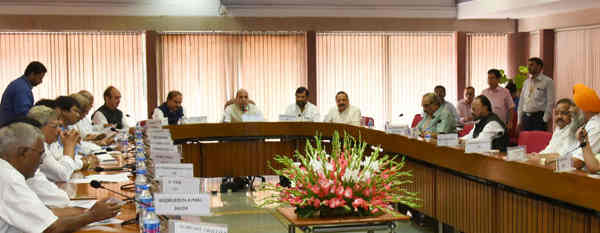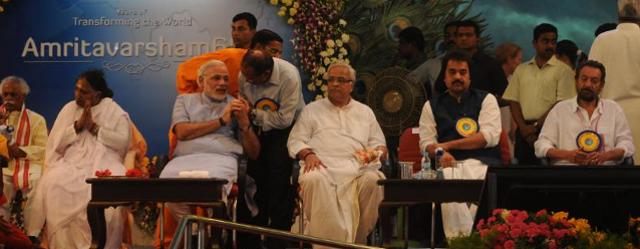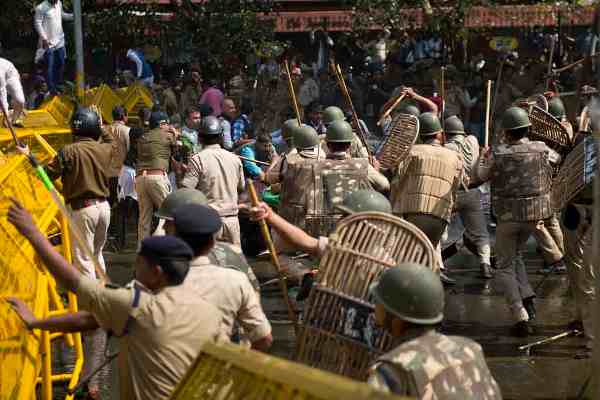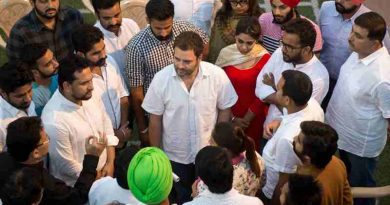How India Is Losing the Diplomatic Battle on Kashmir

Pakistan says it will soon consult all the members of the United Nations Security Council and seek ways to implement the UN resolutions on the Indian Occupied Kashmir (IoK).
By Rakesh Raman
While India’s Prime Minister Narendra Modi is delivering loud speeches to avenge the killings of Indian soldiers in Uri attack, Pakistan is systematically revealing the grim situation in Kashmir to the world leaders.
After Pakistan Prime Minister Nawaz Sharif’s forceful stand on Kashmir in his speech to the UN General Assembly (UNGA) on Wednesday, Pakistan says it will further intensify its efforts to expose Indian forces’ atrocities in the Occupied Kashmir.
Reports suggest that during his New York visit last week, Nawaz Sharif met 48 heads of states / governments, UN Secretary General, and U.S. Secretary of State John Kerry, and presented “Kashmiris’ case with their plight, misery, and unprecedented state terrorism of India.”
Kashmir Issue
Pakistan is leaving no stone unturned to internationalize the burning Kashmir issue as local Kashmiris are facing the wrath of Indian security forces which are hell-bent to crush all voices that demand freedom from India.
Kashmir has been facing a series of violent incidents since the killing of a 22-year-old rebel leader Burhan Wani by the Indian security forces on July 8 in an encounter which many believe was avoidable.
Nearly 100 people have died and thousands injured in the conflicts between the supporters of Burhan Wani and the Indian security forces in Kashmir, which is a disputed territory between India, Pakistan, and China.
Although Burhan Wani was branded as a terrorist by the Indian rulers, he was a freedom fighter for the tens of thousands of local Kashmiris. They rallied behind Burhan Wani to face the excesses of security forces who have been given a free hand by the Indian government to deal with all those in Kashmir who demand freedom.
Kashmir has always been a conflict area between India and Pakistan since 1947 when both these countries got freedom from the British rule. In order to stake their claims over Kashmir, India and Pakistan have fought two bloody wars in 1965 and 1971, besides incessant skirmishes between the rival armies.
Pakistan’s Diplomatic Campaign
Pakistan’s Permanent Representative to the United Nations Dr. Maleeha Lodhi said Saturday that Pakistan will soon consult all the members of the United Nations Security Council and seek ways to implement the UN resolutions on the Indian Occupied Kashmir (IoK).
Referring to the Nawaz Sharif’s speech at the 71st UNGA session, Dr. Maleeha said Pakistan was ready for bilateral talks, but it was India which had shut doors on the dialogue.
“On one hand, India was defying the UN resolutions and on the other, it was not giving access to the fact findings missions in the occupied valley,” she added.
PM Nawaz Sharif just left NY after a hectic & productive visit that signalled Pakistan’s resolute support for the Kashmiri freedom struggle
— Maleeha Lodhi (@LodhiMaleeha) September 23, 2016
In her talk to a TV show, Dr. Maleeha said that Pakistan has handed over a dossier containing facts about human rights violations in the IoK to the global leaders. She also said that the UN Secretary-General was shocked to see the first couple of pages of the dossier that showed Indian forces’ brutalities on even Kashmiri children.
After taking the Kashmir issue successfully to the United Nations (UN), now Pakistan is giving an Islamic color to the trouble in Kashmir where more than 85% of people are Muslims.
Pakistan’s Prime Minister Muhammad Nawaz Sharif has urged the OIC (Organisation of Islamic Coopertaion) and other Muslim countries to raise voice for their Kashmiri brothers and sisters “whose fundamental human rights have been desecrated by Indian security personnel through use of brute force.”
Meanwhile, a protest rally has been planned by Pakistani Americans and Kashmiri outfits outside the United Nations on September 26 when an Indian minister will address the General Assembly.
The Pakistani rally is supposed to register the protest over the ongoing violence in Kashmir and to urge the world body to fulfill its promise of getting right of self-determination for the Kashmiri people.
Increasing Tension
The tension between India and Pakistan increased during the past few days as militants had attacked an Indian army camp and killed 17 soldiers in Uri in the Baramulla district of Jammu and Kashmir (J&K). While India – as usual – blamed Pakistan for the attack, the latter rejected the Indian allegations vehemently.
In fact, India has not yet produced any credible evidence to prove Pakistan’s involvement in the Uri attack. India’s claims are based on mere conjectures and loud rhetoric.
Indian people blindly believe what local media (TV, newspapers, radio, etc.) tells them to believe. Media people tell what government politicians ask them to tell. Politicians – who are mostly illiterate – say what security forces tell them to say.
If India is so sure about Pakistan’s involvement in any attack, it should put the sequence of events with satellite images or other evidence on an open website without any ambiguity so everyone could know the truth.
If, for example, the militants crossed the border to kill Indian soldiers, India should produce the video footage of the complete incident instead of making wild allegations.
India should also clearly reveal why Indian soldiers failed to stop just four militants when they were crossing the official LoC (Line of Control) and why these soldiers failed to save themselves from the alleged attack by the militants.
War with Pakistan
As India is hinting at war with Pakistan instead of handling local Kashmir unrest, all political parties in Pakistan are united and supporting the Nawaz Sharif’s government on Kashmir issue.
General Pervez Musharraf, former President of Pakistan, has said that Pakistan should not feel scared from India’s war threat and if needed Pakistan should strike back.
Similarly, Pakistan People’s Party (PPP) leader Bilawal Bhutto Zardari used an abusive language against India’s Prime Minister Narendra Modi. He said in his tweet on Sunday “The butcher of Gujarat has become butcher of Kashmir and wants to lecture us on terrorism? world must work together to stop this tyrant.”
The butcher of Gujarat has become butcher of Kashmir and wants to lecture us on terrorism? world must work together to stop this tyrant.
— BilawalBhuttoZardari (@BBhuttoZardari) September 25, 2016
Bilawal Bhutto reacted to Modi’s speech on Saturday when he said Pakistan should stop supporting terrorists who create trouble in India, although Modi did not substantiate his claims about Pakistan’s support to terrorism. It was a loud, shallow speech.
When he said “butcher of Gujarat,” Bilawal Bhutto referred to the Gujarat riots of 2002 in which about 2,000 Muslims were killed, besides there were incidents of rape, robbery, and widespread destruction of property affecting Muslims.
It was alleged that the killings were executed at the behest of Narendra Modi who was then the Chief Minister of Gujarat. It was also stated to be an act of state terrorism.
Although Indian courts have almost exonerated Modi in this case, most Muslims in India and abroad still believe that Modi was responsible for Gujarat massacre. Less said about the Indian courts, the better.
According to Human Rights Watch, the attacks against Muslims in Gujarat were actively supported by Modi’s state government officials and by the police. Police told Muslims, “We don’t have any orders to save you.”
As a result, the U.S. administration denied visa to Modi in view of the allegations of human rights violations against him in the 2002 incidents of riots and carnage. But now as he has become the Prime Minister of India, Modi is visiting the U.S. frequently because now he enjoys political immunity.
Modi’s violent image is so scary that recently a politician said that Modi may get him killed, as he was rising in the political sphere and opposing Modi’s policies.
In a video message, Delhi’s chief minister Arvind Kejriwal said Modi is so baffled that he will get him and his party members eliminated.
Earlier, Kejriwal and his Aam Aadmi Party (AAP) also alleged that Modi is not capable to run the country because he is uneducated and flaunting a fake academic degree.
Social Unrest in India
Modi’s background clearly shows that he lacks academic acumen and political skills to run a poor, underdeveloped country like India. He won the 2014 Lok Sabha election for his Bharatiya Janata Party (BJP) by telling lies to the poor voters – most of them are uneducated.
In his pre-election speeches, Modi promised jobs for the youth, economic development for the country, and overall prosperity (अच्छे दिन) for the people of India.
But in the past over 2 years of his rule, the country has come on the brink of a disaster while Modi and his equally incompetent ministers – with the help of corrupt Indian media – are presenting fake economic data to hoodwink the people of India.
According to a leading industry association ASSOCHAM in India, sharp drop in merchandise exports has contributed to a loss of 70,000 jobs, although Modi had promised to create 40 million jobs in the first two years of his government.
Communist Party of India (Marxist) leader Sitaram Yechury criticized the Modi government Saturday by saying that Modi has failed to fulfill his promise of providing 20 million jobs (in a year) and people are, in fact, losing their jobs under Modi’s regime.
“The promise of 2 crore new jobs every year is never repeated now. This year, -0.43% jobs LOST from April-June,” Yechury said.
The promise of 2 crore new jobs every year is never repeated now. This year, -0.43% jobs LOST from April-June. pic.twitter.com/JUNJ1JiRqW
— Sitaram Yechury (@SitaramYechury) September 24, 2016
For the first two quarters of the fiscal 2015-16, ASSOCHAM said, the country’s merchandise exports had dropped by over 17 per cent. The fall in exports continues even this year despite advantage of a low base.
As a result, the unemployment situation in India has gone so bad in the past about two years of Narendra Modi’s government that it is soon expected to trigger a social unrest in the country. In 2015, India added the fewest organised-sector jobs —in large companies and factories — in seven years across eight important industries.
It is, therefore, a general feeling that Modi is deliberately trying to complicate the whole Kashmir issue to divert attention of Indians who are reeling under a complete socio-economic chaos in the country.
As Modi is not skilled to manage India’s social and political affairs, he is wasting his time on totally frivolous activities such as cleaning of streets, yoga exercises, useless sports, and so on.
Although Modi does not possess knowledge on any local or global subject, he prefers to spend a lot of his time on foreign tours to hobnob with the great and the good. Plus, his excessive razzmatazz on the streets of India is disturbing most Indians who are facing extreme poverty and hunger in the country.
While Modi is patting on his own back, the President of India, Pranab Mukherjee, observes that India is facing extreme hunger, illiteracy, and disease.
Recently, Mukherjee said if India has to take its rightful place in the comity of nations, it must free itself from hunger, illiteracy, disease, and destitution. It was a kind of subtle advice to failing Modi.
An Indian political leader Mayawati has stated that Modi may trigger a war with Pakistan to hide his failures. And this seems to be a fair assessment, given the fact that Modi – with his poor intellectual ability – will not be able to solve the Kashmir problem. He is unnecessarily delivering loud slogans against Pakistan, as empty vessels make the most noise (अधजल गगरी छलकत जाए).
While political parties in Pakistan are united on the Kashmir issue, Modi has refused to work with other Indian political leaders to solve the problem.
For example, the Communist Parties of India (CPI-M and CPI) believe that Kashmir problem can be solved if the government is ready to take certain confidence-building measures for the people of Kashmir.
They have suggested that the use of pellet guns on protestors must be stopped in Kashmir and the government must withdraw the AFSPA – or Armed Forces (Special Powers) Acts – and the army from the civilian areas.
The Communist parties also suggest that the Indian government should order a judicial enquiry into all instances of excesses committed by the armed forces against civilians.
But Modi did not implement any of the suggestions given by the other political parties, although his government holds ostentatious meetings with opposition parties on Kashmir issue.
If Modi and his clique have a real plan for Kashmir, they should put it in the form of a program flow chart including timelines on a dedicated website so people could figure out the variance between Modi’s rhetoric and his actual performance in resolving the Kashmir issue.
In the absence of such a plan, Modi is fighting a losing battle with Pakistan – at least on the diplomatic front.
💛 Support Independent Journalism
If you find RMN News useful, please consider supporting us.




